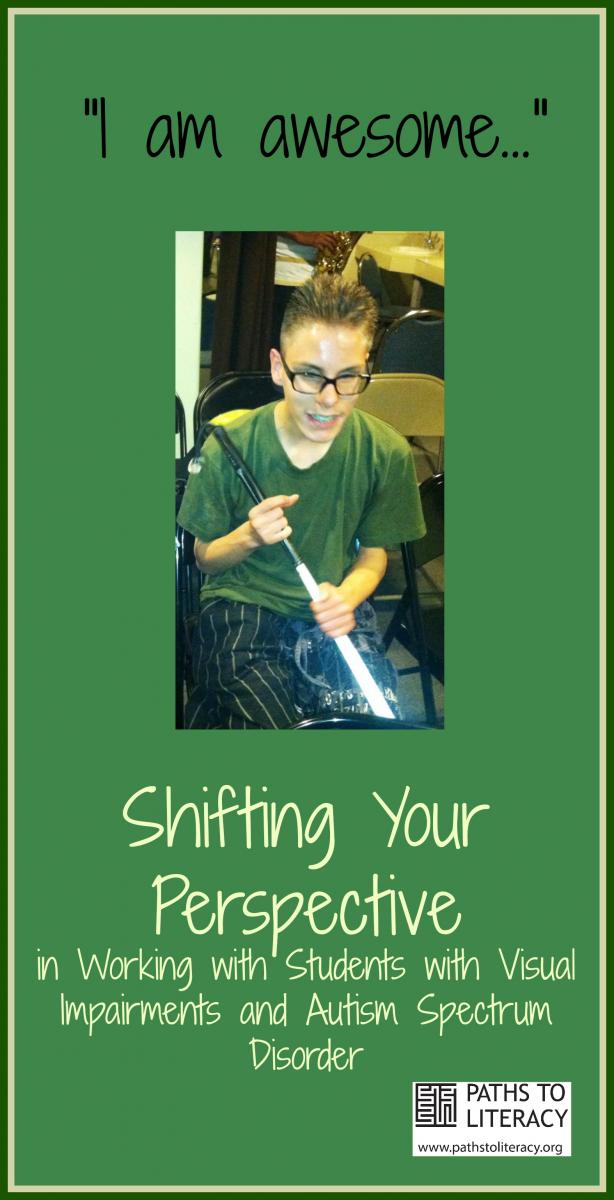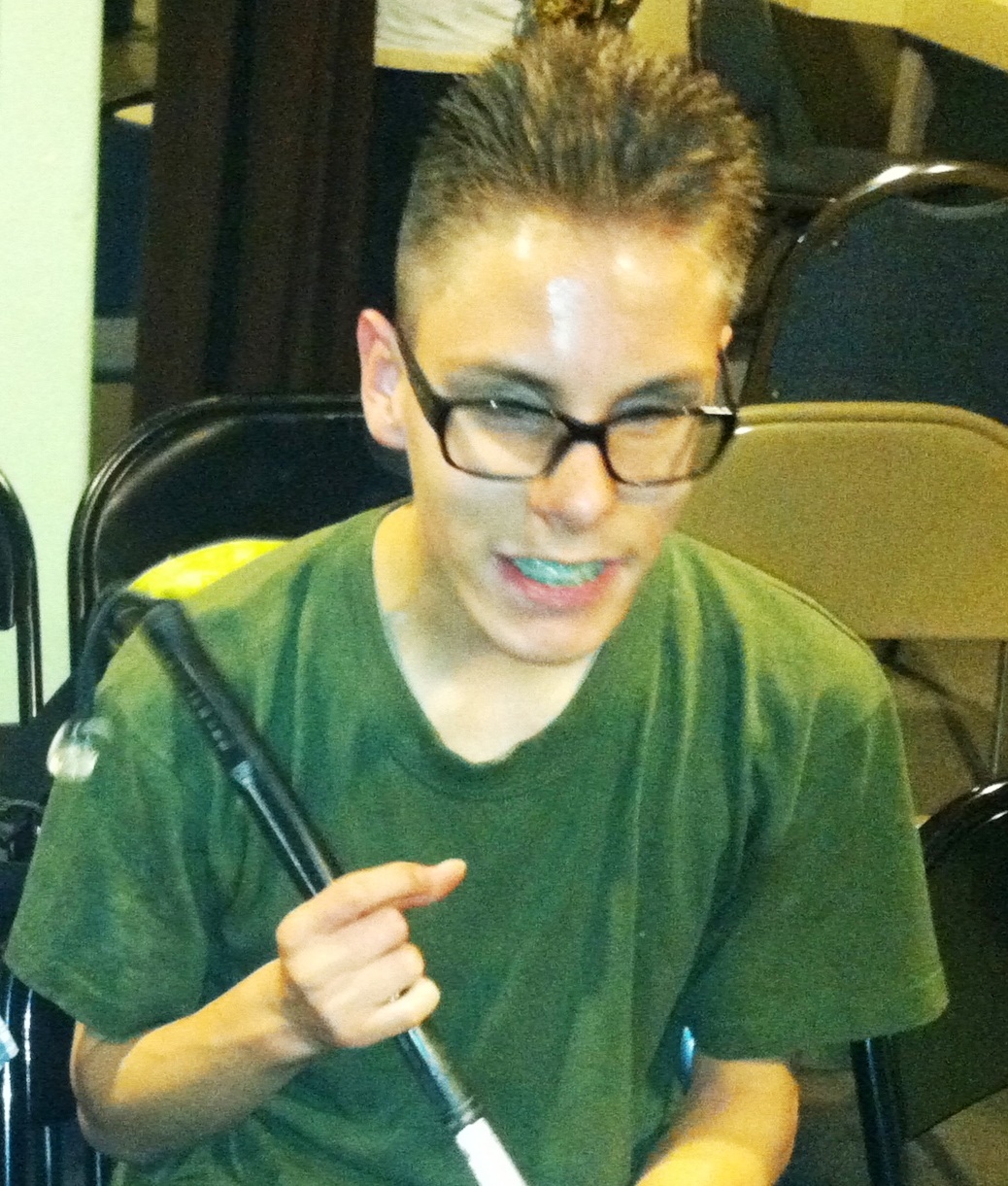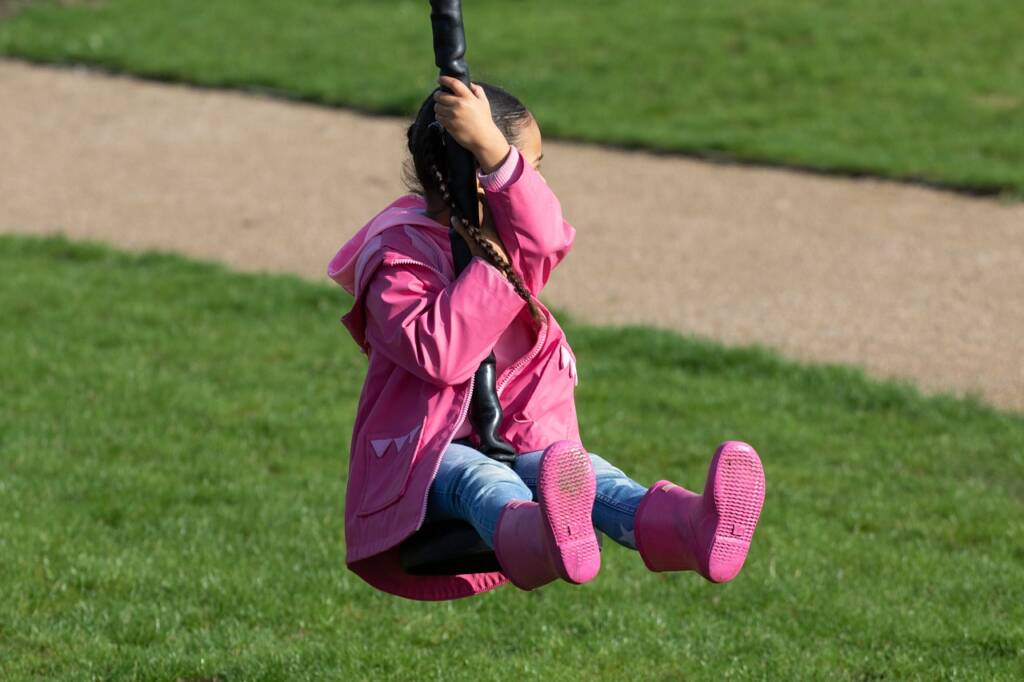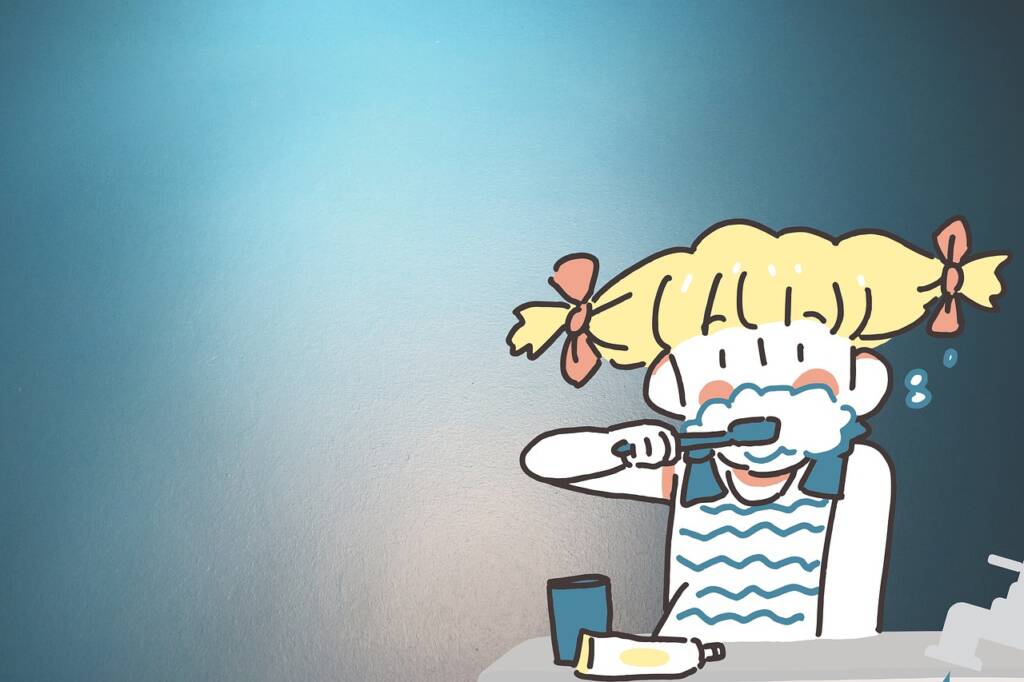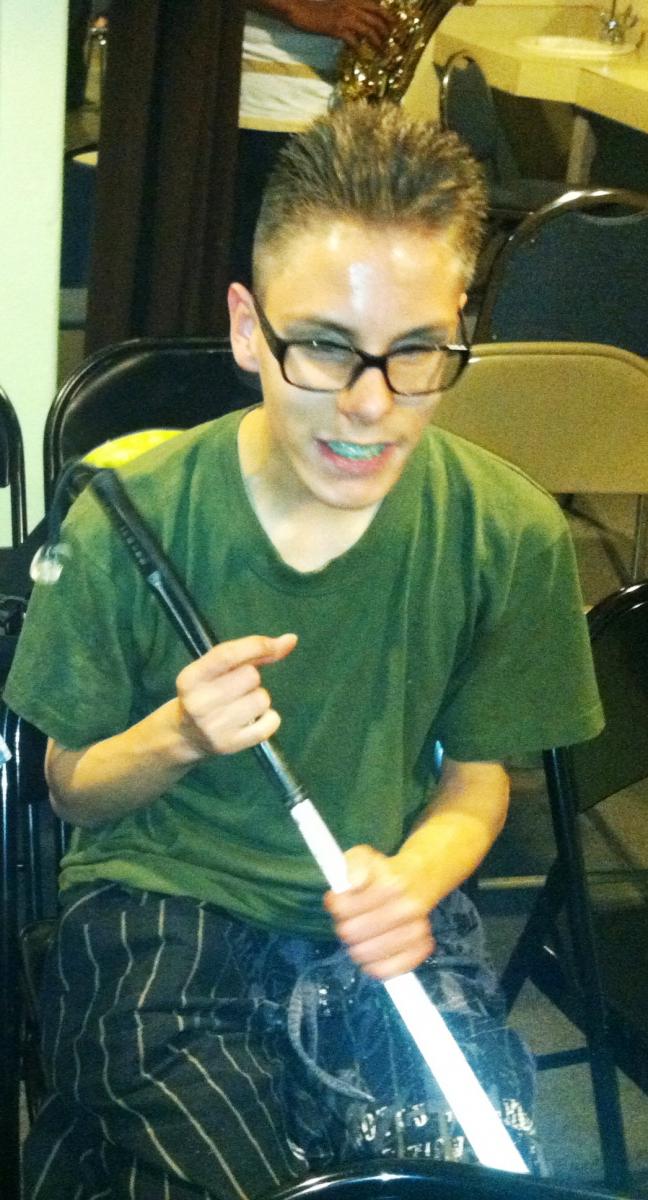 About 3 years ago I found myself in the middle of what I thought was a routine Multidisciplinary Evaluation Team meeting for a high school student who also happened to be present at the table. After a discussion of Eligibility categories and well into our review of past Evaluations, he interrupted- “Hey I have I question you guys. What is Autism?” The silence was profound. Luckily the student was flexible and allowed me to defer the definition to the next day’s speech/language therapy session in his classroom.
About 3 years ago I found myself in the middle of what I thought was a routine Multidisciplinary Evaluation Team meeting for a high school student who also happened to be present at the table. After a discussion of Eligibility categories and well into our review of past Evaluations, he interrupted- “Hey I have I question you guys. What is Autism?” The silence was profound. Luckily the student was flexible and allowed me to defer the definition to the next day’s speech/language therapy session in his classroom.
It was a bit daunting trying to plan out the concepts I wanted this student to get out of a topic as broad as Autism. Of course this was not the first time I had something completely backwards. He was about to teach me all the concepts I needed to know about Autism. Our discussion yielded the following important information: My student thought everyone had Autism, telling him he had Autism was like telling him he had a freckle on his face, and because of the way he processed auditory information he kept using the word “Awesome” in place of Autism. He wrote the following original work on his BrailleNote:
Autism
By Frank John Tallabas
I heard the word Autism in a meeting.
I asked, “What is Autism?”
Not everybody has Autism.
I have Autism.
I am awesome.
I will always have Autism. That is okay. Because I am awesome.
Autism means I do work. I like to have a schedule for work. I really like counting in work. I really like to know what time it is so I know when to start and when to finish work.
Autism means I do braille. I learned braille when I was younger. It was easy for me to learn Braille because I liked to memorize all the letters and contractions.
Autism means I do radio reports. I love to hear sound effects and my own voice. I like writing about my favorite topics like Blind Olympics, Sun Tran, and Sun Van. I write about the topics in the same way every time.
Autism means I have skills. I work on conversations, orientation and mobility, cutting, writing, math, computer, and victor reader. And of course the BrailleNote. I learned the skills because I am good at them.
Because I am awesome.
As we embark on a new school year, we reunite with students who have had a variety of summer experiences, who possess a spectrum of skills, and who may have a changing physiological status by the second. They also have something that is really, really important: A unique idea of what the world means to them. This is often very different from what we think the world should mean to them. Unless I start every interaction finding out what that perspective is, I am going to be teaching students who are autistic, deafblind, visually impaired and/or intellectually disabled (at least my definition of those categories anyway). My job will be really hard actually. I will probably be burned out by November.
As an educator I have been charged with observing students with intention. In doing so I get a lot of information about my student’s understanding of the people, objects, and activities around them. Frank John just so happened to use sentences of output on a BrailleNote to give me this information. He had a really important point: Knowing about autism did not change what he already knew about himself.
I challenge you all to find out what your students already know about themselves, even if they do not give it to you via BrailleNote. Carefully interpret every subtle gesture, head turn, vocalization, comment, conversation, stick drawing, mouthing of an object, spinning ritual, arm tug, giggle, grunt, and leg kick. You will soon discover what AWESOME students we have the absolute privilege of teaching, and our job will be the opposite of hard. If you haven’t heard of the Special Education Eligibility Category of “Awesome,” just ask your kids. If your kids are pre-linguistic, please re-read this paragraph.
I sincerely hope you have the best year of teaching, parenting, and/or learning yet. I look forward to sharing more strategies this year, just as soon as my students teach me all of them!
